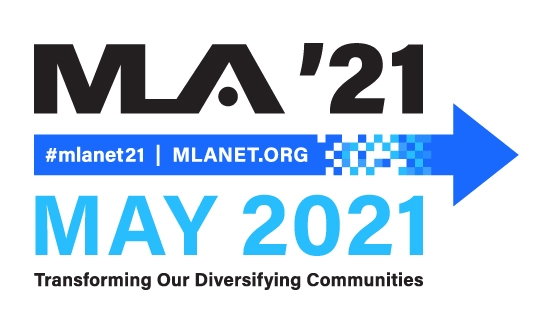 I am retiring as HSLS Library Director, effective July 1, 2021. Except for two years away*, I have been at Pitt in one role or another since 1969: first as an undergraduate, then as a “personal librarian” to the chair of psychiatry, next as Librarian and Library Director at Western Psychiatric Institute & Clinic (now UPMC Western Psychiatric Hospital), and finally as Associate Director, Interim Director, and Director of HSLS. If you prick my finger, I bleed blue and gold. I have had a wonderful career, and have appreciated the opportunities that I have enjoyed at Pitt. I cherish the friendship, collegiality, and expertise of our HSLS staff and the Pitt community, and I am enormously proud of our accomplishments as a leading health sciences library on the national scene. Continue reading
I am retiring as HSLS Library Director, effective July 1, 2021. Except for two years away*, I have been at Pitt in one role or another since 1969: first as an undergraduate, then as a “personal librarian” to the chair of psychiatry, next as Librarian and Library Director at Western Psychiatric Institute & Clinic (now UPMC Western Psychiatric Hospital), and finally as Associate Director, Interim Director, and Director of HSLS. If you prick my finger, I bleed blue and gold. I have had a wonderful career, and have appreciated the opportunities that I have enjoyed at Pitt. I cherish the friendship, collegiality, and expertise of our HSLS staff and the Pitt community, and I am enormously proud of our accomplishments as a leading health sciences library on the national scene. Continue reading
Information was current at time of publication.
Information was current at time of publication.
HSLS Congratulates Barbara Epstein on Her Prestigious Career
It is with mixed emotions that we would like to congratulate Barbara Epstein, HSLS Director, on her retirement after 17 years as director and a long career at Pitt. During her time with HSLS, Barbara has been an essential part of the library’s success. We have had the pleasure to not only work alongside Barbara but also to thrive under her excellent leadership. While we are saddened to see her leave, we would like to take a moment to reflect on her many noteworthy accomplishments.
 Barbara has been an instrumental leader in health sciences librarianship. She became the 2017-18 Medical Library Association (MLA) president, after serving as president-elect the previous year. In addition, she was on the MLA Board of Directors and Executive Committee. During her time with MLA, she had the opportunity to connect with officers of health sciences library associations from Europe, Canada, Australia, Taiwan, Africa, and the U.S. to share ideas and challenges. She was selected to present the Janet Doe Lecture at MLA’s 2015 annual meeting. In 2016, MLA bestowed the honor of Fellow to Barbara based on her accomplishments and contributions to the health sciences information profession. Continue reading
Barbara has been an instrumental leader in health sciences librarianship. She became the 2017-18 Medical Library Association (MLA) president, after serving as president-elect the previous year. In addition, she was on the MLA Board of Directors and Executive Committee. During her time with MLA, she had the opportunity to connect with officers of health sciences library associations from Europe, Canada, Australia, Taiwan, Africa, and the U.S. to share ideas and challenges. She was selected to present the Janet Doe Lecture at MLA’s 2015 annual meeting. In 2016, MLA bestowed the honor of Fellow to Barbara based on her accomplishments and contributions to the health sciences information profession. Continue reading
Information was current at time of publication.
Make File Management Simpler with Version Control
Works in progress can become unruly. As a piece of research code grows, it often spawns new files that iterate on the original: this version fixes one bug but introduces another, or that version swaps two similar functions. The same is true for manuscript drafts which pass among co-authors, accumulating new text (and usually new filenames) as they travel. It can be difficult to tell these versions apart from each other, or trace the history of how one version evolved from another. Version control systems make this work easier.
Version control is defined as “a system that records changes to a file or set of files over time so that you can recall specific versions later” in Pro Git (second edition, 2014), an excellent open textbook by Scott Chacon and Ben Straub. Version control allows a user to see all changes made to a file, who made the changes, and when they were made. It can let an author approve or reject edits made to a manuscript, or quickly determine which set of figures are the right ones to submit to a journal. Continue reading
Information was current at time of publication.
EndNote 20: What’s New and What’s Not?
If you’re a regular EndNote X9 user, you may have seen a pop-up notice encouraging you to upgrade to the new EndNote 20. EndNote 20 is the latest version of the software, and looks much different from prior updates. Despite the visual makeover, much of the functionality is the same. Cite While You Write in Word has not changed, and most features remain. So what’s different about the new EndNote?
New Design
While EndNote 20 retains the three-paned structure of EndNote X9, the interface has been simplified. Previously you could search PubMed and other databases by switching to Online Search or Integrated Mode. EndNote 20 has combined that feature into the main library, essentially making Integrated Mode the default. EndNote 20 also has a darker color scheme and larger displays. The toolbar has been removed and replaced with a few large icons above the middle library pane. Continue reading
Information was current at time of publication.
Does My Funder Require Me to Publish Open Access?
If you have ever received grant funding for your research, particularly through a federal agency such as the National Institutes of Health (NIH), you may be aware that there are requirements for making your research available to the public. For example, NIH’s Public Access Policy states that “all investigators funded by the NIH submit…to PubMed Central an electronic version of their final peer-reviewed manuscripts upon acceptance for publication” within 12 months. Many federal agencies in the United States have similar policies, designating a specific repository for submission of final research manuscripts within a certain time frame. These policies can be located on the funder’s website or by browsing a resource such as SPARC’s Browse Article and Data Sharing Requirements by Federal Agency. Continue reading
Information was current at time of publication.
Remembering Nancy Tannery
 Colleagues and friends mourn the death of Nancy Hrinya Tannery, MLS, former HSLS Senior Associate Director, who passed away on Friday, May 14, 2021.
Colleagues and friends mourn the death of Nancy Hrinya Tannery, MLS, former HSLS Senior Associate Director, who passed away on Friday, May 14, 2021.
Nancy had a long history of service to the University and to the profession of health sciences librarianship. She completed an undergraduate degree from Penn State in medical technology, and enjoyed a 20-year career in research before earning her MLS degree from Pitt. She began her career as a Reference Librarian at HSLS in 1996. Her professional skills as a Faculty Librarian and ability to lead and mentor led to a steady rise through a succession of HSLS management positions. Nancy left HSLS in 2017 to serve as Assistant Provost, and retired from the University in 2020 with emerita status. Continue reading
Information was current at time of publication.
2021 MLA Participation
 HSLS librarians were active participants in the Medical Library Association’s Annual Meeting from May 10-27, 2021.
HSLS librarians were active participants in the Medical Library Association’s Annual Meeting from May 10-27, 2021.
Immersion Sessions
Helena VonVille, Research and Instruction Librarian, presented “Protocol Development Using Health Research Reporting Guidelines and Critical Appraisal Tools.”
Tess Wilson, All of Us Community Engagement Coordinator, NNLM, presented “Leadership and Management Best Practices for Leveraging Community Connections to Improve Access to Health Information.” Continue reading
Information was current at time of publication.
Featured Workshop: Exploring and Cleaning Data with OpenRefine
HSLS offers classes in a wide array of subjects—molecular biology, database searching, bibliographic management, and more! You can quickly view all Upcoming Classes and Events or sign up to receive the weekly Upcoming HSLS Classes and Workshops email.
This month’s featured workshop is Exploring and Cleaning Data with OpenRefine. The workshop will take place on Friday, June 11, 2021, from 10-11:30 a.m.
Register for this virtual workshop*
Exploring and Cleaning Data with OpenRefine is a workshop that introduces participants to the basics of working with OpenRefine to clean, organize, and transform messy datasets.
OpenRefine (formerly Google Refine) is a powerful, free, open-source tool for working with unorganized tabular data. Since OpenRefine works offline in a web browser, your private data is not uploaded to the cloud and will stay on your local computer. Note that you are always working on a copy of your data, your raw data files are kept in their original form. Another benefit of OpenRefine is that while the program has a graphical interface, the system documents steps that have been completed to allow for reproducibility in data cleaning. These steps can be saved as JSON scripts and used to automate steps to clean other similar files. Continue reading
